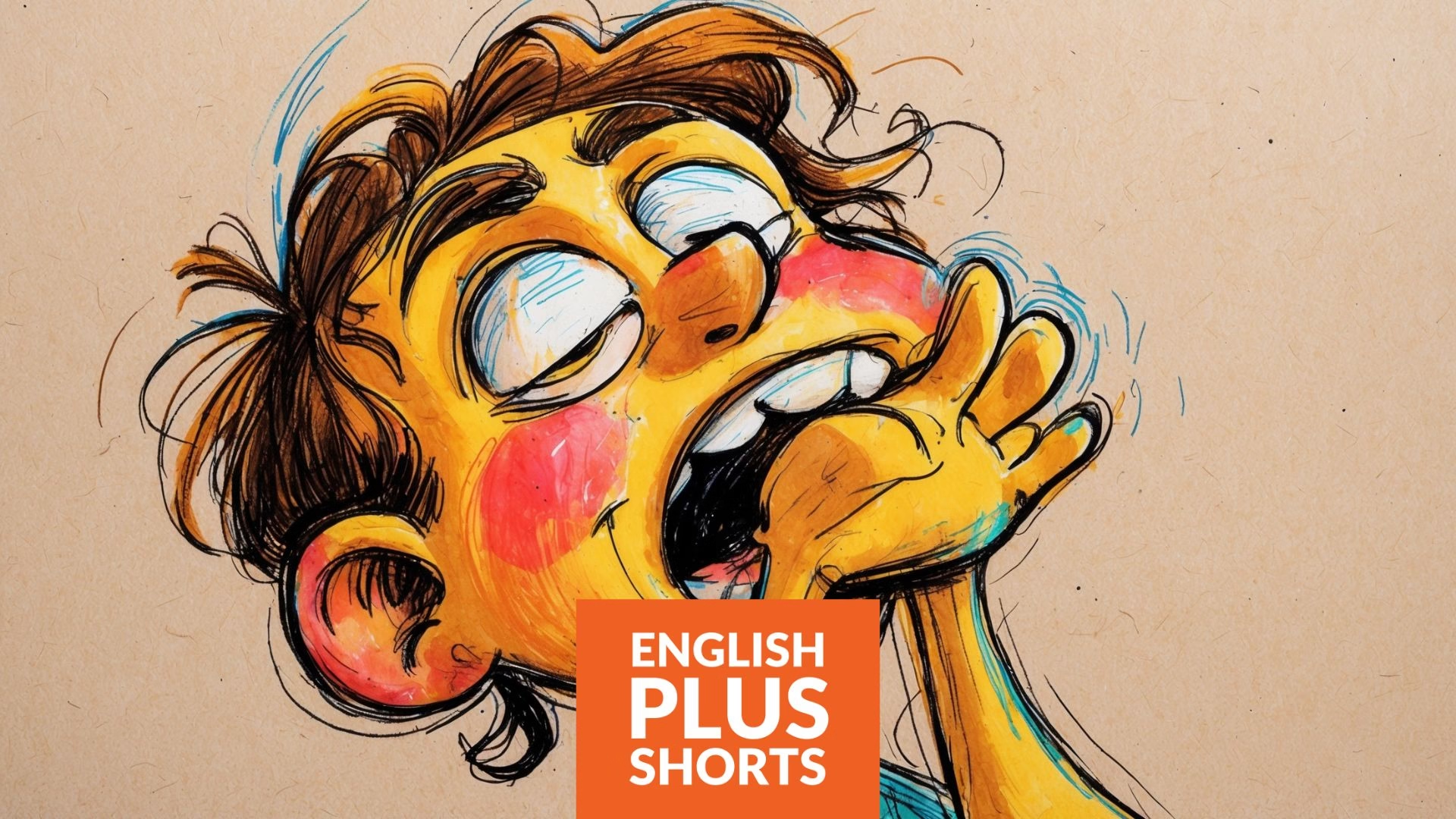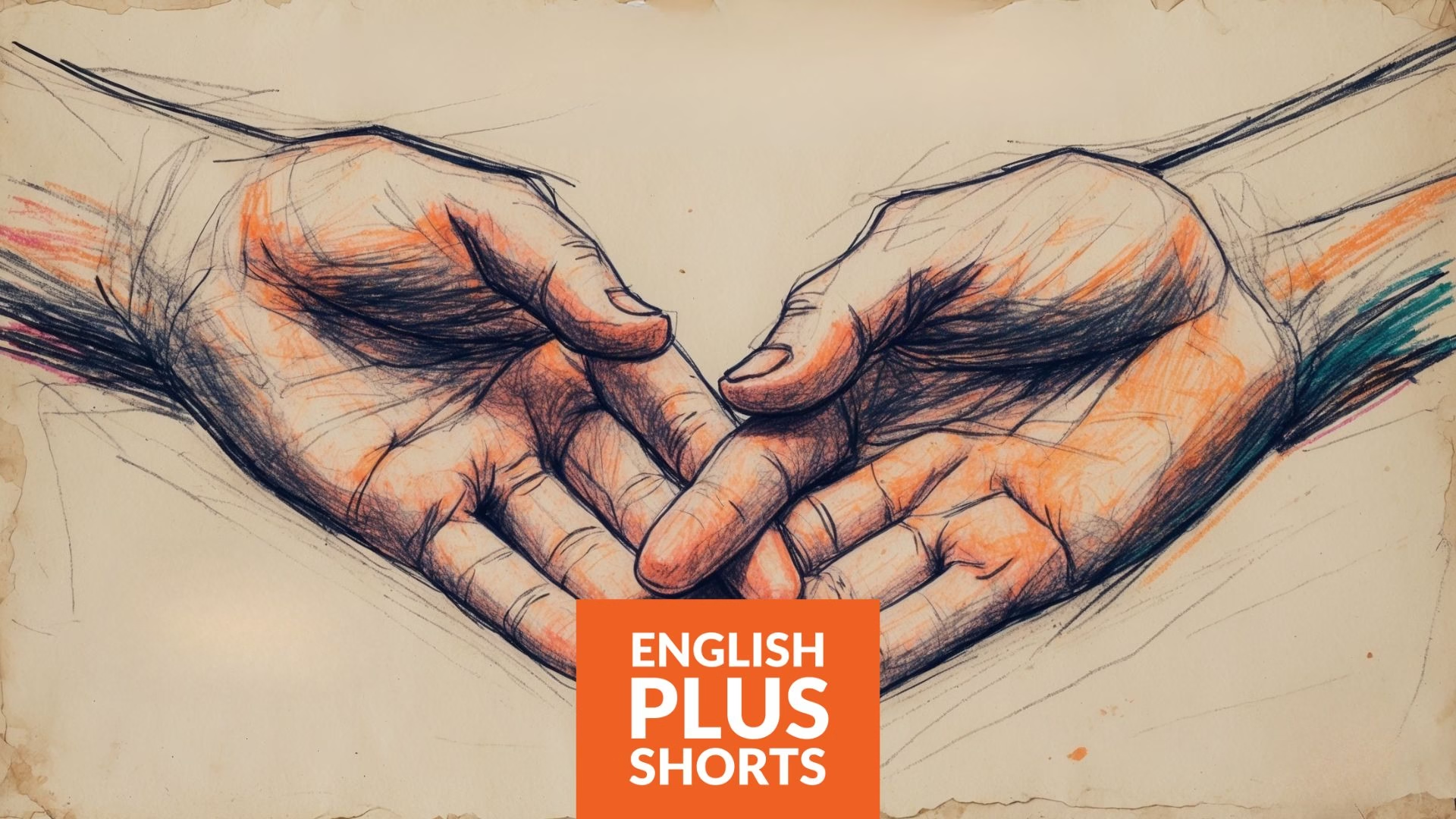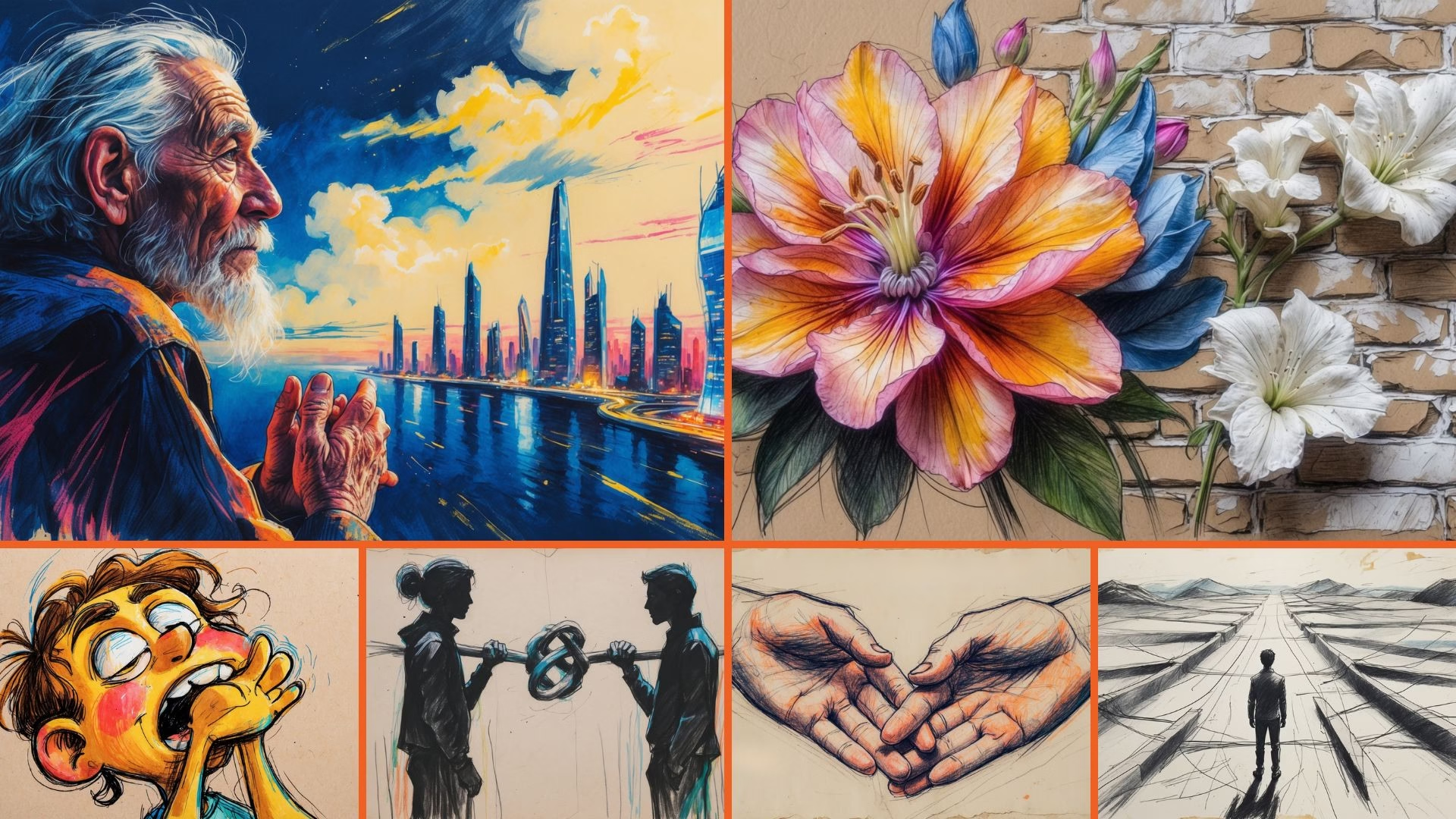- Audio Episode
- Daily Expression | Put Your Foot in Your Mouth
- Daily Question | What Is One Unresolved Conflict You Wish to Address, and Why Have You Delayed It?
- Daily What If | What If We Could Live Forever?
- Word of the Day | Efflorescence
- Weekly Philosophy Nuggets | The Paradox of Free Will: How Free Are Our Choices?
- Weekly Sayings | “Being deeply loved by someone gives you strength, while loving someone deeply gives you courage.” – Lao Tzu
Audio Episode
Daily Expression | Put Your Foot in Your Mouth

Has your tongue ever betrayed you? You know, that moment when you say something you instantly wish you could take back, something awkward, embarrassing, or even offensive? Well, that’s exactly what we’re talking about today with the delightful expression: “put your foot in your mouth.”
Isn’t it a comical image? Trying to physically cram your foot into your mouth! It sounds incredibly uncomfortable and probably not something you’d want to attempt. But metaphorically, it perfectly captures the feeling of saying something foolish or inappropriate.
So, what does it really mean to “put your foot in your mouth”? It means to say something tactless, insensitive, or just plain wrong, often causing embarrassment or offense to yourself or others. It’s that moment when you realize your words have landed with a thud and you wish the ground would just swallow you whole.
Where does this rather peculiar expression come from? Its origins aren’t entirely clear, but it’s thought to be a variation of older, similar phrases that suggest speaking foolishly. The imagery of the foot in the mouth likely emphasizes the clumsiness and absurdity of the blunder.
Think about some classic scenarios where someone might put their foot in their mouth. Maybe you accidentally ask a woman when her baby is due, only to find out she’s not pregnant. Ouch! Foot firmly inserted. Or perhaps you make a joke that falls completely flat and offends someone in the process. Yep, that’s another foot in the mouth moment.
We’ve all been there, haven’t we? Those moments when our brains seem to disconnect from our mouths, and words just tumble out in a less-than-ideal way. It’s part of being human, and while it can be mortifying at the time, it’s also something we can often look back on with a bit of humor – eventually!
The power of this expression lies in its relatability. We all understand the feeling of a verbal misstep. It’s a reminder that words have power, and sometimes they can trip us up.
But let’s go beyond the surface level for a moment. What does “putting your foot in your mouth” really mean in our lives? I think it highlights the importance of mindful communication, of thinking before we speak, and of being considerate of others’ feelings and perspectives.
It also reminds us that social interactions can be complex, and sometimes, despite our best intentions, we might say the wrong thing. It’s a call for empathy and understanding, both for ourselves when we make a mistake and for others when they do.
Consider a time when someone else put their foot in their mouth around you. How did it make you feel? What was the situation, and how was it resolved (or not resolved)? Reflecting on these experiences can help us become more aware of the impact our own words can have.
And what about those times when you were the one doing the foot-in-mouth tango? What did you learn from those experiences? Did it make you more cautious with your words in the future?
Here’s a thought to ponder: What if we approached these verbal blunders with a bit more grace and humor? What if, instead of dwelling on the embarrassment, we learned to laugh at ourselves and move on?
Maybe it’s about acknowledging the mistake, offering a sincere apology if necessary, and then trying to steer the conversation in a more positive direction. It’s about showing that we didn’t intend to cause offense and that we’re willing to learn from our slip-up.
What if, instead of fearing putting our foot in our mouth, we saw it as an occasional, albeit awkward, part of human connection? Maybe it even makes us a little more relatable and shows our imperfections.
So, the next time you feel that familiar sinking feeling after saying something regrettable, remember the image of trying to fit your foot in your mouth. Take a breath, try to make amends if needed, and remember that it happens to the best of us. And who knows, maybe someday you’ll even be able to laugh about it.
Now, I’d love to hear your thoughts on this. What if there was a universal “oops” button we could press after putting our foot in our mouth that would magically erase the awkward moment? Would you use it, or would you prefer to learn from the experience? Share your stories and insights with us in the comments section on the podcast, on our website englishpluspodcast.com, or on our Patreon page.
Daily Question | What Is One Unresolved Conflict You Wish to Address, and Why Have You Delayed It?

Let’s delve into a topic that many of us can probably relate to: What is one unresolved conflict you wish to address, and perhaps more importantly, why have you delayed it?
Think about it for a moment. Is there a disagreement with a friend, a misunderstanding with a family member, a tension with a colleague, or even an internal conflict within yourself that you’ve been putting off dealing with?
Unresolved conflicts can weigh heavily on our minds and affect our relationships, our well-being, and even our productivity. They can create a sense of unease, resentment, or anxiety that lingers in the background of our lives.
So, what’s that one conflict that keeps popping into your head, the one you know you should probably address but haven’t? And what are the reasons behind your delay?
Perhaps it’s a fear of confrontation. Confronting someone can be uncomfortable and even scary. We might worry about hurting their feelings, damaging the relationship, or facing an unpleasant reaction.
Maybe it’s a lack of clarity about what you want to say or how to approach the situation. Sometimes, emotions can be tangled, and it can be difficult to articulate our needs and feelings in a constructive way.
Perhaps you’re waiting for the “right time” – a moment when everyone is less stressed or more receptive. But sometimes, that perfect moment never seems to arrive, and the conflict continues to fester.
Maybe it’s a feeling of helplessness or a belief that the conflict is too difficult to resolve. You might have tried to address it in the past without success, leading to discouragement and a reluctance to try again.
Or perhaps it’s simply easier in the short term to avoid the issue. Ignoring a conflict can provide temporary relief, but it often comes at the cost of long-term strain and potential damage to the relationship.
Consider the energy that unresolved conflicts can consume. They can occupy our thoughts, affect our mood, and even impact our physical health. Addressing them, even if it’s challenging, can often lead to a release of that pent-up energy and a sense of relief.
What are the potential benefits of addressing an unresolved conflict? It could lead to a deeper understanding between you and the other person, a stronger and more honest relationship, a resolution that allows everyone to move forward, or even just a sense of closure for yourself.
Even if the conflict can’t be fully resolved to everyone’s satisfaction, the act of addressing it openly and honestly can be valuable in itself. It shows respect for the other person and for the relationship, and it allows for a more authentic connection.
Think about the potential consequences of delaying a conflict indefinitely. It could lead to further misunderstandings, increased resentment, a breakdown in communication, or even the end of a relationship.
What if you approached this unresolved conflict with a mindset of curiosity and a genuine desire to understand the other person’s perspective? Could that make the conversation less daunting?
Maybe it’s about focusing on expressing your own feelings and needs clearly and respectfully, rather than blaming or accusing the other person. Using “I” statements and actively listening to their point of view can be powerful tools for constructive dialogue.
Consider breaking down the conflict into smaller, more manageable parts. Instead of trying to resolve everything at once, maybe you can focus on addressing one specific aspect of the issue.
And what if you acknowledged your own role in the conflict? Taking responsibility for your part can often open the door for the other person to do the same.
This question isn’t about assigning blame or forcing a particular outcome. It’s about encouraging self-reflection and considering the potential benefits of addressing those lingering conflicts that are holding us back.
I’d love to hear your thoughts on this. What is one unresolved conflict you’ve been delaying, and what is one small step you could take this week towards addressing it? Share your insights and intentions with us in the comments section on the podcast, on our website englishpluspodcast.com, or on our Patreon page.
Daily What If | What If We Could Live Forever?

Let’s dive into a truly mind-bending “what if” scenario: What if we could live forever? Imagine a world where death was no longer an inevitable part of the human experience.
It’s a concept that has fascinated us for centuries, appearing in myths, legends, and science fiction. The idea of escaping the limitations of mortality and living an endless life holds a certain allure. But what would the reality of eternal life actually be like?
First, let’s consider the personal implications. Imagine having an infinite amount of time. What would you do with it? Would you finally learn every language, read every book, travel to every corner of the universe? Would you pursue every passion and master every skill?
The possibilities seem endless, but would they eventually become overwhelming? Would the novelty of new experiences wear off after centuries or millennia? Would we become jaded or lose our sense of purpose without the natural life cycle of birth, growth, and death?
What about our relationships? Imagine watching loved ones grow old and pass away while you remain eternally young. Would you form deep connections knowing they would eventually end, or would you become emotionally detached to protect yourself from the pain of loss?
And how would immortality affect our personal growth and development? Would we continue to evolve and learn, or would we become stagnant after a certain point? Would the challenges and triumphs of life still hold the same meaning if we knew we had an eternity to experience everything?
Now, let’s think about the societal implications. What would a world with immortal humans look like? How would it impact population growth? If no one ever died, the planet would quickly become overcrowded, leading to potential resource scarcity and environmental challenges.
How would our social structures and institutions change? Would we still have retirement? What would be the purpose of careers and ambition if we had unlimited time to achieve our goals? How would we handle inheritance and the transfer of wealth across generations that never end?
What about innovation and progress? Would a society of immortals be more resistant to change, clinging to the status quo because they have an eternity to figure things out? Or would the accumulation of knowledge over vast periods lead to unprecedented advancements?
Consider the psychological impact on humanity. Would we become bored and apathetic, knowing that there are infinite tomorrows? Or would the preciousness of each moment be amplified by the awareness of its endless potential?
What about justice and accountability? How would we deal with crime and punishment if individuals could live forever? Would prisons become permanent institutions? Would our legal and ethical systems need a complete overhaul?
The concept of living forever also raises profound philosophical questions about the meaning of life. If death gives our lives a sense of urgency and value, what would replace that in a world without end? Would we need to redefine our purpose and find new sources of meaning?
Perhaps there would be different forms of immortality. Maybe we could choose when to end our lives, or perhaps there would be limitations to our eternal existence. The details of this “what if” scenario could drastically alter its implications.
What if living forever came at a cost, such as the inability to have children? How would that impact the future of humanity?
I’d love to hear your thoughts on this. What if you were offered the chance to live forever? Would you take it? What are the first things you would want to do, and what are your biggest concerns about eternal life? Share your reflections with us in the comments section on the podcast, on our website englishpluspodcast.com, or on our Patreon page.
Word of the Day | Efflorescence

Let me ask you, have you ever watched a flower bud slowly unfurl, revealing its vibrant petals in a breathtaking display of color? Or perhaps you’ve noticed a white, powdery substance appearing on the surface of an old brick wall? Well, both of these seemingly unrelated phenomena can be described by our word for today: “efflorescence.”
Efflorescence – say it with me: ef-luh-RES-uhns. It’s a word that sounds delicate and beautiful, much like the blooming of a flower. As a noun, “efflorescence” has two main meanings. Firstly, it refers to the period or state of flowering; the process of blooming. Think of a rose bush covered in blossoms, a desert landscape suddenly bursting with wildflowers after a rain, or the vibrant display of cherry blossoms in spring – all examples of efflorescence in this sense.
Secondly, and perhaps less commonly known, “efflorescence” also refers to a white powdery or crystalline deposit on the surface of materials such as brick, plaster, or concrete, caused by the evaporation of water that has seeped through the material and dissolved salts. You might have seen this on older buildings, especially in damp environments.
Where does this word of blossoming and powdery deposits come from? It has its roots in the Latin verb “efflorescere,” meaning “to blossom out” or “to flower.” The “ex-” prefix means “out,” and “florescere” means “to begin to flower.” So, at its heart, “efflorescence” speaks to the idea of something emerging or blooming forth.
When we use “efflorescence” to describe the flowering of plants, it evokes a sense of beauty, vitality, and the fleeting nature of life’s most vibrant moments. It captures the peak of a plant’s cycle, when it is most visually stunning and often producing seeds for the next generation.
Think about how poets and writers might use “efflorescence” to create a vivid image in the reader’s mind. They might describe the “efflorescence of spring,” painting a picture of a landscape coming alive with color and fragrance. Or they might speak of the “efflorescence of youth,” capturing the vibrancy and potential of young adulthood.
The second meaning of “efflorescence,” the powdery deposit on surfaces, might seem less poetic, but it’s a fascinating example of a natural process at work. It’s a sign that water has been present and has carried dissolved minerals to the surface, where they are left behind as the water evaporates. While it might not be aesthetically pleasing on a building, it’s a reminder of the chemical processes that are constantly shaping our environment.
What I love about the word “efflorescence” is its ability to connect two seemingly disparate ideas – the beauty of blooming and a natural, albeit sometimes unwanted, mineral deposit. It highlights the multifaceted nature of language and how a single word can hold different but related meanings.
Consider how the concept of “efflorescence” can be applied metaphorically to other areas of life. We might speak of the “efflorescence of creativity” when someone experiences a sudden burst of artistic output. Or we could describe the “efflorescence of a new idea” when a concept suddenly takes shape and flourishes.
What if we looked for moments of “efflorescence” in our own lives, those times when we feel like we are truly blooming and expressing our full potential?
Think about a time when you witnessed a particularly stunning display of floral efflorescence. What colors and fragrances do you remember? What feelings did it evoke?
And have you ever noticed the efflorescence on a brick wall or other surface? Did you know that’s what it was called? Does knowing the name change how you perceive it?
Here’s a thought to ponder: What if we approached all forms of “efflorescence,” both the beautiful and the less aesthetically pleasing, with a sense of curiosity and appreciation for the natural processes at play?
So, the next time you see a flower in full bloom or notice a white deposit on an old wall, remember the word “efflorescence.” Think about its dual meanings and the stories they tell about nature and the world around us.
What if understanding the word “efflorescence” helps you to see more beauty and wonder in both the grand displays of nature and the more subtle processes at work in our everyday environment? Share your observations and thoughts with us in the comments section on the podcast, on our website englishpluspodcast.com, or on our Patreon page.
Weekly Philosophy Nuggets | The Paradox of Free Will: How Free Are Our Choices?

Let’s get philosophical today and ponder a question that has puzzled thinkers for centuries: How free are our choices? This brings us to the fascinating paradox of free will.
On the one hand, we experience life as if we are making choices all the time. What to eat for breakfast, what to wear, what to say, what to do – it all feels like it’s up to us. We feel like we have agency, the ability to decide our own actions. This intuitive sense of freedom is a fundamental part of our human experience.
But on the other hand, if we think about it more deeply, things get a bit more complicated. Consider the idea of determinism, which suggests that all events, including our choices, are causally determined by prior events and the laws of nature. If this is true, then every decision we make might ultimately be the inevitable consequence of a long chain of cause and effect, stretching back to the very beginning of the universe.
So, if our choices are predetermined, are we really free? This is the heart of the free will paradox.
Think about the factors that influence our decisions. Our genes play a role in shaping our personalities and predispositions. Our upbringing and environment have a profound impact on our beliefs and values. Our past experiences shape our perspectives and influence our future choices. Even our current mood and physical state can affect what we decide to do.
If all these factors are influencing us, to what extent are we truly in control of our decisions? Are we just complex biological machines, reacting to stimuli according to predetermined rules?
Some philosophers argue for libertarianism, the idea that we do have genuine free will and that our choices are not solely determined by prior causes. They suggest that there is a moment of genuine choice where we can freely decide between different options, independent of any prior influences. But how this freedom operates within the framework of the physical world is often a point of contention.
Others subscribe to compatibilism, which tries to find a middle ground. Compatibilists argue that free will and determinism are not necessarily incompatible. They might suggest that we have free will when our actions are the result of our own desires and intentions, even if those desires and intentions are themselves ultimately caused by other factors. It’s about acting according to our “will,” even if that will has its roots in a chain of causation.
Then there are those who lean towards hard determinism, the view that free will is an illusion and that all our actions are indeed predetermined. They might argue that our feeling of freedom is simply a byproduct of the complexity of our brains and the fact that we are not consciously aware of all the factors that influence our choices.
The implications of this paradox are far-reaching. If we don’t have free will, what does that mean for our sense of responsibility for our actions? Can we truly be held accountable for things we were always destined to do? How does it affect our concepts of morality, justice, and punishment?
If we do have free will, how does it actually work? Where does this power of independent choice come from? How does it interact with the physical laws that govern the universe?
This paradox touches upon fundamental questions about the nature of consciousness and our place in the cosmos. It challenges us to think deeply about what it means to be human and the extent to which we are truly authors of our own lives.
What if our perception of free will is a necessary illusion that allows us to function in the world? Even if our choices are ultimately determined, the feeling of agency might be essential for motivation, learning, and personal growth.
Consider the implications for artificial intelligence. If we create machines that can make complex decisions, will they also possess free will? Or will their actions always be determined by their programming and the data they are fed?
I’d love to hear your thoughts on this. Do you believe in free will? Why or why not? What experiences in your life make you feel like you have free choice, and what makes you question it? Share your philosophical insights with us in the comments section on the podcast, on our website englishpluspodcast.com, or on our Patreon page.
Weekly Sayings | “Being deeply loved by someone gives you strength, while loving someone deeply gives you courage.” – Lao Tzu

We’re going to delve into a beautiful and insightful quote attributed to the ancient Chinese philosopher Lao Tzu: “Being deeply loved by someone gives you strength, while loving someone deeply gives you courage.”
This simple sentence holds a profound truth about the power of love and its impact on our lives. Let’s unpack it and see what wisdom we can glean from it.
The first part of the quote states that “being deeply loved by someone gives you strength.” Think about a time when you felt truly loved and accepted by another person, whether it was a family member, a friend, or a romantic partner. How did that love make you feel?
Often, being deeply loved provides us with a sense of security and belonging. It can boost our self-esteem and give us the confidence to face challenges. Knowing that someone believes in us and supports us unconditionally can be an incredible source of inner strength. It’s like having a solid foundation to stand on, even when the winds of life are blowing fiercely.
This kind of love can empower us to take risks, to pursue our goals, and to overcome obstacles that might otherwise seem insurmountable. When we feel loved, we are more likely to believe in ourselves and our capabilities. It’s like having a cheerleader in our corner, constantly reminding us of our worth and potential.
Now, let’s look at the second part of the quote: “while loving someone deeply gives you courage.” This speaks to a different but equally powerful aspect of love. When we love someone deeply, we often find ourselves doing things we never thought we were capable of.
This could be anything from making sacrifices for their well-being to standing up for them in the face of adversity. Love can push us beyond our comfort zones and inspire us to act with bravery and conviction.
Think about the courage it takes to be vulnerable with someone you love, to open your heart and share your deepest fears and insecurities. Or the courage it might take to support a loved one through a difficult time, even when it’s emotionally challenging for you.
Loving someone deeply can also give us the courage to face our own limitations and shortcomings. We might strive to be a better person for the sake of those we love, pushing ourselves to grow and evolve in positive ways.
The beauty of this quote lies in its recognition that both being loved and loving others are essential for a fulfilling life, and that they empower us in different but complementary ways. Being loved provides us with the inner strength we need to navigate the world, while loving others gives us the courage to act and make a difference.
Consider the interplay between these two aspects of love in our lives. Often, the love we receive can give us the strength to love others more deeply, and the act of loving others can, in turn, strengthen our own sense of self and purpose.
What if we actively cultivated both our ability to give love and our openness to receive it? How might that enrich our lives and the lives of those around us?
Think about the people in your life who make you feel deeply loved. How have they given you strength? And think about the people you love deeply. How have they inspired you to be courageous?
This quote reminds us that love is not just a passive emotion; it’s an active force that can shape our character and empower us to live more fully. It highlights the importance of connection and the profound impact that human relationships can have on our well-being.
I’d love to hear your thoughts on this. How has being deeply loved given you strength, and how has loving someone deeply given you courage? Share your experiences and reflections with us in the comments section on the podcast, on our website englishpluspodcast.com, or on our Patreon page.










0 Comments